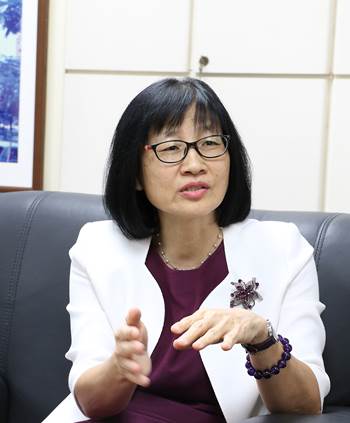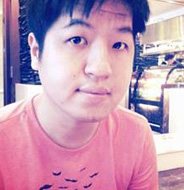|
In the draft amendments to the Patent Act in Taiwan, the Taiwan Intellectual Property Office (TIPO) plans to limit the period of time in patent invalidity proceedings for the provision of material evidence by the party challenging the patent's validity and the patent holder, as well as adding a statutory mechanism for patent licensing. If these amendments pass, then both invalidation proceedings similar to the US inter partes review (IPR) and an open patent licensing system similar to that in Europe may make make appearances in Taiwan.
In response to the rapidly changing industrial ecosystem in Taiwan, another wave of amendments to the country's Patent Act kicked off in 2017, with two public hearings on amendments held at the end of 2017 and the start of 2018 respectively, announcing the proposed amendments to the public and getting feedback on them. These amendments will mean significant adjustments to design patents, invalidation proceedings and post-judgment divisional applications, as well as bringing in the open licensing system that has been active in Europe for years.

Figure 1: Director of the Taiwan Intellectual Property Office, Sherry Hong; Photo by Tommy Tang
Accelerating Patent Invalidity Proceedings
Under the current act, the party challenging the patent and the patent holder can provide grounds or evidence at any time before a judgment is made in invalidity proceedings. In practice both parties tend to continually provide new material, which means that judgments keep getting pushed back leading to criticism from the industry and comparisons to a game of ping pong. To address the delays in invalidity proceedings, the amendments to the patent act this time round aim to remedy issues around the challenger providing grounds or evidence in an untimely manner and the time limits for the patent holder to apply to amend the patent (See Chart 1).
Chart 1: Proposed Amendments to Patent Invalidation Proceedings
Article |
Amended Version |
Current Version |
Article 73(iv) |
A requester of invalidation action should provide invalidation reasons or evidence within the timeframes as laid out below, late submissions will not be examined:
- Three months after the date of filing of the said action.
- Within a month of receiving notification from the patent authority.
|
A requester of invalidation action may provide invalidation reasons or evidence within one (1) month after the date of filing the said action; however, the reasons or evidence provided prior to rendering a decision shall still be examined. |
Article 74(iii) |
During the examination of a patent invalidation case, the patent holder should only apply for a post-grant amendment within the stated period for response. But amendments consisting of only deleting claims are not subject to this limitation. |
(Newly added - the original 74(iii) is now 74(iv)) |
Article 74(iv) |
The Specific Patent Agency may conduct invalidation proceedings accordingly if the reason(s) and evidence provided by the requester of an invalidation action or the response of the patent holder (to apply for an extension a valid reason must be attached) is likely to delay the proceedings or if the facts and evidence provided are sufficiently clear. |
(Originally 74(iii))
The Specific Patent Agency may conduct invalidation proceedings accordingly if the reason(s) or evidence provided by the requester of invalidation action is likely to delay the proceedings or if the facts and evidence provided are sufficiently clear. |
Article 77(i) |
If, during the invalidation proceedings, a request for post-grant amendment is filed,…it shall send a copy of the amended description, claim(s) and/or drawing(s) to the requester of invalidation action. However, amendments consisting of only deleting claims are not subject to this limitation. |
(Newly added proviso)
If, during the invalidation proceedings, a request for post-grant amendment is filed,…it shall send a copy of the amended description, claim(s) and/or drawing(s) to the requester of invalidation action. |
Article 78(i) |
Amid invalidity proceedings, patent holders who have transferred their patent rights are not affected by invalidity proceedings. The party to whom the patent rights have been transferred should sign a declaration agreeing to be subject to the invalidity proceedings. |
(Newly added) |
Chart by Clarence Chiang; Translated by Conor Stuart
Source of Data: An explanation of the draft amendments to the Patent Act
Sherry Hong, the director of the Taiwan Intellectual Property Office (TIPO), stated that these draft amendments are in preparation for oral hearing proceedings and the pharmaceutical patent linkage system, especially the latter, as when drugs get market approval and are linked to patents, one of the strategies that generic pharmaceutical manufacturers can adopt to get an exclusive right to sell is to request invalidity proceedings with the Taiwan Intellectual Property Office. Therefore, if invalidity proceedings can't be accelerated, that would seriously impact the operations of the patent linkage system, and harm the rights of the party who requested the invalidation proceedings and the patent holder.
Industry has been generally positive about the amendments, but a lawyer pointed out that after the amendments to Article 73 and 74 civil litigation will become more adversarial. Article 75 will not be altered in these amendments, so patent authorities reserve the right to consider evidence not provided by the requester of the invalidation action. "This leaves a back door open for the parties involved, as if the patent authority does not examine something, the parties can claim that the patent authority has been lax in exercising their administrative power, which will bring us back to the current situation." This will conflict with the point of these amendments. The newly added Article 78(i) creates a different issue. It is clearly stated that patent assignees must make a statement agreeing to be subject to invalidity proceedings, but how should proceedings be dealt with if this statement has never been made, or if they state that they're not willing to be subject to proceedings?
Bringing in an Open Licensing System
Another major focus of the draft amendment, is introducing an open licensing system similar to those that have been active for years in European countries such as the UK and Germany. Under the new system, after the patent holder has registered they have to grant a non-exclusive license to anyone, unless they have a reasonable reason to refuse. In other words, if you see an open license statement in the patent gazette, anyone can notify the patent holder and start to pay license fees and use the patent.
The point of this system is to encourage the circulation of patented technology and encourage the exploitation of patented technology. Although this is a positive aim, there are some operational difficulties in the draft amendments. For example, the fourth item of the draft states that anyone can notify the patent holder in written form, and pay a "reasonable" license fee - but how should the "reasonable" nature of the licensing fees be defined? Is it up to the patent holder to set as they like? Will the Taiwan Intellectual Property Office draft management rules? Or will it follow the fair, reasonable and non-discriminatory (FRAND) principle used for standard essential patents (SEP)? Another issue is what constitutes a "reasonable" justification for which the patent holder can refuse to license. This mightn't be a problem for upstream and downstream partners, but it will be more of an issue for competitors in the same industry. Is being a competitor a "reasonable" justification to refuse a license?
Chart 2: Taiwan, the UK and Germany open licensing systems
|
Taiwan (draft) |
The UK |
Germany |
Statement Procedure |
Written Statement + Registration Publication |
Written Statement + Registration Publication |
Written Statement + Registration Publication |
Legal effect after the statement |
Must not request suspentsion of patent rights |
- Must not request an injunction
- Damages are two times the licensing fee
- Renewals are halved (if registration is cancelled these must be made up)
|
Renewals are halved (if registration is cancelled these must be made up) |
Requirements for license |
- Written notice to the patent holder
- The licensing conditions are set by mutual agreement
- Pay a reasonable royalty
|
- Written notice to the patent holder
- The licensing conditions are set by mutual agreement or a ruling can be requested
|
- Send a written notice by registered post to the patent holder and explain how it will be used
- Reference to quarterly report and pay licensing fees
|
Need to put in a request? |
No related regulations |
One must request a ruling on licensing conditions |
One must request licensing fees |
Chart by Clarence Chiang
Source of Data: An explanation of the draft amendments to the Patent Act
The biggest difference between the Taiwanese version of the open licensing system and those of other countries, relates to renewal payments. To encourage patent holders to join the open licensing system, the UK and Germany offer a 50% discount on renewal payments, however, after the patent holder announces the cancellation of the open license, they have to repay all the discounted renewals, but in this draft there is no such discount. On this point, Hong stated that in the planning they'd already considered preventing fraud. "We worry that patent holders come to register but deliberately don't license, or only license to their subsidiaries, just in order to pay less in renewals." This is why a renewals discount wasn't included in the draft.
TIPO should be praised for pushing for the current reforms, and invalidation proceedings have been less than efficient and there has been an under exploitation of patented technology. However, although the larger direction is correct, the design behind the formulation of articles and the operating norms are equally important, accompanying measures must be in place if industry is to get any benefit from the new legislation.
 |
|
| Author: |
Clarence Chiang |
| Current Post: |
Senior Editor, NAIP Newsletter |
| Education: |
Business Administration, National Chengchi University, Taiwan |
| Experience: |
Reporter, CommonWealth Magazine
Reporter, Business Today Magazine |
|
|
|
| Facebook |
|
Follow the IP Observer on our FB Page |
|
|
|
|
|
|

